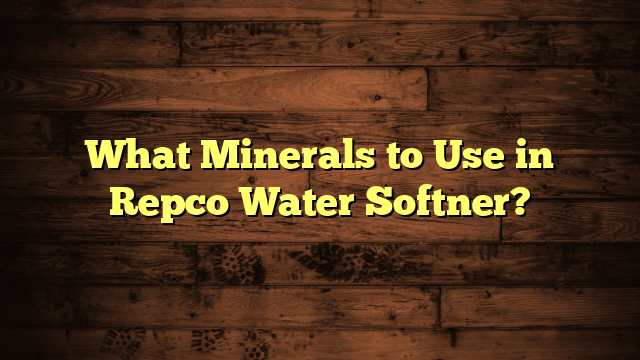What Is a Water Softner?
You might be wondering what a water softener actually is and why it has become a common fixture in many homes. Fundamentally, it's a system designed to tackle hard water issues, which can lead to various plumbing headaches and even affect your skin and hair. By replacing hard minerals with softer alternatives, it aims to improve water quality in your household. But before you consider one for yourself, it is crucial to understand how they work and the specific benefits they offer. What might surprise you is how these systems can transform your daily routine in unexpected ways.
Key Takeaways
- A water softener is a device that reduces water hardness by removing calcium and magnesium ions from the water supply.
- It uses ion exchange, replacing hard minerals with softer ions like sodium or potassium to enhance water quality.
- Regular maintenance, including checking salt levels and backwashing, is essential for optimal performance and longevity of the system.
- Benefits include extended appliance lifespan, improved skin and hair health, and enhanced cleaning efficiency with detergents.
- Signs of hard water include scale buildup, dry skin, ineffective soap lathering, and water spots on dishes.
Definition of Water Softener
A water softener is a device designed to reduce the hardness of water by removing minerals like calcium and magnesium. Water hardness can lead to various issues, including scale buildup in pipes and appliances, reduced efficiency in soaps and detergents, and unsightly stains on fixtures. By addressing these problems, water softeners enhance your home's water quality.
You'll typically find two types of softening agents used in water softeners: sodium ions and potassium ions. These agents actively replace the hard minerals in the water, effectively softening it. When water passes through the softener, the hard minerals cling to the resin beads within the unit, and the softening agents are released into the water instead.
This process not only improves the feel of the water but also prolongs the lifespan of your plumbing systems and appliances. The result is softer water that feels better on your skin and works more effectively for cleaning.
Understanding the definition and function of a water softener is essential for maintaining a comfortable and efficient living environment. By investing in this technology, you can combat the negative effects of water hardness in your home.
How Water Softeners Work
Water softeners operate primarily through a process called ion exchange, where hard water minerals are replaced with softer ones.
Resin beads play a critical role in this functionality, capturing calcium and magnesium ions while releasing sodium or potassium ions.
Furthermore, the regeneration cycle guarantees that the resin beads are replenished, maintaining the system's efficiency over time.
Ion Exchange Process
Using an ion exchange process, water softeners effectively reduce hardness in water by replacing calcium and magnesium ions with sodium or potassium ions. This process is essential in mitigating the effects of water hardness, which can cause scale buildup and negatively impact your appliances.
Here's how the ion exchange process works:
- Water enters the softener: Hard water flows into the resin tank, where the ion exchange takes place.
- Ions exchange: As water passes through, calcium and magnesium ions adhere to resin beads, while sodium or potassium ions are released into the water.
- Saturation point: Over time, the resin beads become saturated with calcium and magnesium, reducing their effectiveness.
- Regeneration cycle: When saturation occurs, the softener initiates a regeneration cycle, flushing the resin with a concentrated salt solution to replenish the sodium or potassium ions.
Resin Bead Functionality
Resin beads play an important role in the functionality of water softeners, acting as the primary medium for ion exchange. These small, spherical beads are typically made from polystyrene and are charged with sodium ions. When hard water flows through the resin bed, calcium and magnesium ions in the water are attracted to the negatively charged resin beads, displacing the sodium ions. This process effectively reduces the hardness of the water you use.
There are various resin types available, each tailored to different water conditions and applications. Some resins are better suited for specific contaminants, while others excel in high-capacity scenarios. It's vital to select the right resin type to guarantee peak performance of your water softener.
To maintain the efficiency of your resin beads, regular bead maintenance is important. Over time, beads can become fouled with contaminants or lose their effectiveness due to ion saturation.
You can extend the lifespan of your resin by periodically regenerating it with a brine solution, which replenishes the sodium ions and cleans the beads. By understanding resin functionality, you can guarantee your water softener continues to provide soft, high-quality water.
Regeneration Cycle Explained
After the resin beads have captured calcium and magnesium ions, they eventually reach a point of saturation where they can no longer soften water effectively. This is when the regeneration cycle kicks in, allowing your water softener to restore its functionality.
The regeneration process typically involves the following steps:
- Initiation: Based on your water softener's settings, the regeneration frequency might be set to occur daily, weekly, or based on the volume of water processed.
- Brine Preparation: The system draws salt from the brine tank, mixing it with water to create a concentrated brine solution.
- Backwashing: The flow of water reverses, dislodging debris and sediment from the resin beads, ensuring they're clean and ready for the next phase.
- Ion Exchange: The brine solution flows through the resin, replacing the captured calcium and magnesium ions with sodium ions, effectively rejuvenating the beads.
Once the cycle completes, your water softener can once again provide soft water.
Regular maintenance of the brine tank and timely regeneration are essential for peak performance and longevity of your system.
Types of Water Softeners
When it comes to selecting a water softener, understanding the various types available is essential for effective water treatment. You'll typically encounter two main categories: salt-based systems and magnetic softeners. Each type operates differently and suits different needs.
Salt-based systems are the most common and effective option for hard water. They use sodium to replace the hardness minerals like calcium and magnesium, providing significant improvement in water quality. However, they do require periodic salt refills and maintenance.
On the other hand, magnetic softeners are a newer technology that claims to reduce scale buildup without the use of salt. They work by altering the physical properties of minerals in the water, making them less likely to adhere to surfaces. While they're easier to maintain, their effectiveness might not match that of traditional systems.
Here's a quick comparison:
| Type | Description |
|---|---|
| Salt-based systems | Uses sodium ions for hardness removal |
| Magnetic softeners | Alters mineral properties without salt |
| Cost of operation | Higher due to salt refills |
| Maintenance | Requires regular salt replenishment |
Choosing the right type depends on your specific requirements.
Benefits of Water Softeners
Using a water softener can greatly extend the lifespan of your appliances by reducing scale buildup.
You'll also notice healthier skin and hair, as softened water eliminates harsh minerals that can cause dryness.
Furthermore, cleaning becomes more efficient, allowing detergents to work better and reducing the need for excess product.
Improved Appliance Lifespan
One of the key benefits of a water softener is its ability to considerably extend the lifespan of your household appliances. Hard water contains minerals like calcium and magnesium that can lead to scale buildup, negatively impacting appliance efficiency. By using a water softener, you can minimize this buildup, resulting in reduced repairs and enhanced performance.
Here are four ways a water softener improves appliance lifespan:
- Washing Machines: Soft water prevents the accumulation of detergent residue and scale, which can clog hoses and reduce machine efficiency.
- Water Heaters: Softened water helps maintain heating elements, reducing energy consumption and prolonging the unit's life.
- Dishwashers: With soft water, you'll experience fewer spots on dishes, as well as lower risks of corrosion and scaling in the machine.
- Coffee Makers: Softened water can help maintain the heating element and improve taste, ensuring your coffee maker lasts longer.
Investing in a water softener not only enhances the efficiency of your appliances but also minimizes the need for costly repairs, ultimately saving you time and money.
Healthier Skin and Hair
Appliances aren't the only beneficiaries of softened water; your skin and hair also reap considerable rewards. Hard water contains minerals such as calcium and magnesium, which can strip moisture from your skin and hair. This can lead to dryness, irritation, and even exacerbate conditions like eczema.
By using a water softener, you eliminate these harsh minerals, resulting in enhanced skin hydration. With softened water, your skin retains moisture more effectively, making it feel smoother and more supple. You'll likely notice a reduction in itchiness and dryness, improving your overall skin health.
Using softened water for bathing and showering means that your skin can better absorb hydration, leading to a more radiant complexion.
Additionally, softened water contributes to hair softness. The absence of mineral buildup allows your hair to maintain its natural oils, resulting in less frizz and better manageability.
You'll find that your hair feels silkier and looks shinier, making styling easier and more effective. Investing in a water softener can considerably improve both your skin and hair health, offering you a more comfortable and aesthetically pleasing experience.
Enhanced Cleaning Efficiency
When hard water interacts with soaps and detergents, it forms insoluble compounds that hinder cleaning effectiveness. This can be frustrating, especially when you're trying to keep your home and laundry fresh.
A water softener helps mitigate these issues, enhancing your cleaning efficiency in several ways:
- Improved Soap Performance: Softened water allows soaps and cleaning products to lather more effectively, maximizing their cleaning potential.
- Reduced Soap Scum: By preventing the formation of insoluble compounds, you'll notice less buildup of soap scum on your fixtures and surfaces.
- Enhanced Laundry Efficiency: Soft water makes your laundry detergents more effective, leading to cleaner clothes without the need for extra detergent.
- Longer Lasting Appliances: With fewer mineral deposits, your washing machines and dishwashers operate more efficiently, extending their lifespan.
Investing in a water softener not only improves the performance of your cleaning products but also saves you time and money in the long run.
You'll appreciate cleaner surfaces and fresher laundry, making your home a more pleasant place to live.
Signs You Need a Water Softener
Many homeowners often overlook the signs that indicate the need for a water softener. If you're experiencing any hard water symptoms, it's essential to assess your water quality. Below is a table highlighting common signs that suggest you may need a water softener:
| Sign | Description | Action Recommended |
|---|---|---|
| Scale Buildup | White, chalky residue on faucets and appliances | Consider water softener |
| Dry Skin & Hair | Skin irritation and brittle hair | Test water hardness |
| Soap Inefficiency | Soap not lathering or rinsing well | Evaluate water quality |
| Stiff Laundry | Clothes feeling rough or looking dingy | Check for hard water symptoms |
| Water Spotting | Spots on dishes and glassware | Investigate water treatment |
If you notice these signs, it's time to think about investing in a water softener. Addressing hard water symptoms not only improves your daily life but also extends the lifespan of your plumbing and appliances. Don't ignore these indicators; they can have a significant impact on your home's water quality.
Installation Process
Installing a water softener involves several key steps to secure peak performance and efficiency in treating hard water. Following these installation tips guarantees a smooth setup process, allowing you to enjoy softer water quickly.
- Gather Installation Tools: Before you start, make certain you have the necessary tools, such as a pipe cutter, adjustable wrenches, Teflon tape, and a screwdriver. These will help you navigate the installation process effectively.
- Choose the Location: Select a suitable spot near your main water line and a power source. Ascertain it's accessible for maintenance and that it meets the manufacturer's requirements.
- Shut Off Water Supply: Before making any connections, turn off the main water supply to prevent leaks and water damage during installation.
- Connect the System: Follow the manufacturer's instructions to connect the water softener to your plumbing system. Use Teflon tape on threaded connections to secure a tight seal and avoid leaks.
Maintenance Tips
Regular maintenance is essential for guaranteeing your water softener operates efficiently and prolongs its lifespan. To achieve this, you should perform routine checks on your system every few months.
Start by inspecting the brine tank for salt levels; if it's low, add more salt to guarantee proper regeneration. Check for any salt bridges, which can block salt from dissolving.
Next, examine the resin beads in the mineral tank. If they appear discolored or clogged, a resin cleaning solution may be necessary. Furthermore, inspect the plumbing connections for leaks or corrosion, as these can lead to significant issues down the line.
Don't forget about filter replacement. Depending on your water quality, replace any pre-filters or post-filters every 6 to 12 months. This helps maintain water quality and guarantees your softener functions efficiently.
Finally, keep an eye on the control panel settings and adjust them according to your household's water usage.
Cost Considerations
Maintaining your water softener not only guarantees peak performance but also involves various cost considerations that can impact your budget. Understanding these costs helps you make informed decisions that align with your financial goals.
- Initial Investment: The upfront cost of purchasing a water softener can vary widely, typically ranging from a few hundred to several thousand dollars, depending on the system's capacity and features.
- Installation Costs: Professional installation may be necessary, adding to your initial investment. DIY installation can save money, but ascertain you have the right skills and tools.
- Salt and Maintenance Supplies: Regularly purchasing salt and other maintenance supplies is essential. Factor in ongoing costs for these consumables to your budget.
- Long Term Savings: Despite the initial investment, water softeners can lead to long-term savings. They reduce wear and tear on appliances, lower energy bills, and minimize the need for costly plumbing repairs.
Frequently Asked Questions
Can Water Softeners Remove Other Contaminants Besides Hardness Minerals?
Water softeners primarily target hardness minerals, but they don't effectively remove heavy metals or chemical contaminants. For thorough treatment, consider additional filtration systems designed specifically to handle those substances in your water supply.
Are Water Softeners Safe for Drinking Water?
You'll find that water softeners are generally safe for drinking water. However, consider potential health effects from sodium or potassium added during the softening process, especially if you have dietary restrictions related to these minerals.
How Long Do Water Softeners Last?
A water softener's lifespan typically ranges from 10 to 20 years, depending on its quality and maintenance requirements. Regular upkeep, like salt replenishment and cleaning, can greatly enhance its durability and performance over time.
Do Water Softeners Use a Lot of Electricity?
Water softeners typically don't use a lot of electricity, especially the more energy-efficient models. Their electricity usage is minimal, primarily for regeneration cycles, making them a practical choice for your household's water treatment needs.
Can I Install a Water Softener Myself?
You can attempt a DIY installation of a water softener, but be aware of potential installation challenges. Proper plumbing knowledge is essential, and you'll need to guarantee correct connections to avoid leaks and system malfunctions.
Conclusion
To summarize, investing in a water softener can greatly enhance your home's water quality and overall comfort. Did you know that nearly 85% of U.S. households experience hard water issues? By reducing mineral buildup, you can protect your appliances, improve cleaning, and promote healthier skin and hair. With the right softener, you'll enjoy softer water and a more efficient home. Don't wait—consider making the switch and experience the difference for yourself!







